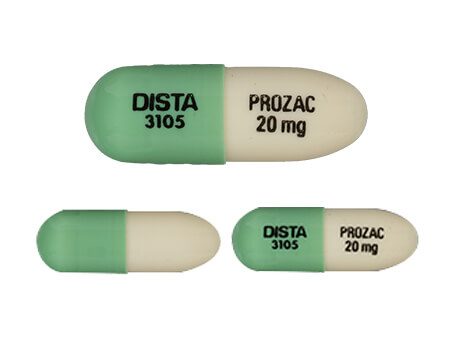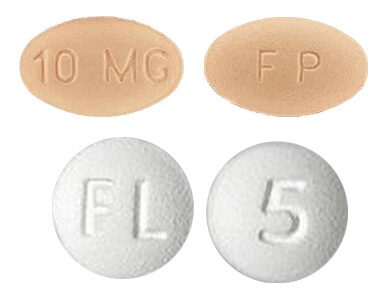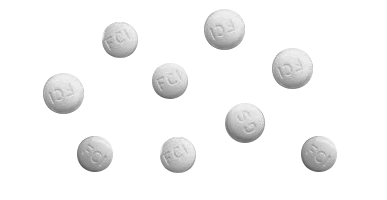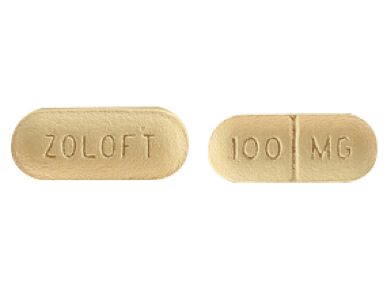SSRI Antidepressant Lawsuit
SSRI antidepressant lawsuits alleged that drugs like Prozac, Zoloft and Paxil caused serious side effects, including increased suicide risk and birth defects. Over nearly 30 years, lawsuits led to settlements worth millions, amid claims that manufacturers failed to warn consumers about SSRI risks.
- Legally reviewed by Andrea S. Hewitt, Esquire
- Last update: May 7, 2025
Status of SSRI Antidepressant Lawsuits
SSRI lawsuits played out over nearly 30 years, from the early 1990s to around 2020. Drugwatch is unaware of any attorneys currently taking SSRI antidepressant lawsuits.
SSRI antidepressant lawsuits claimed the popular medications had side effects that led to suicide, increased suicidal thoughts or caused behavioral changes or birth defects.
More than one in 10 American adults take these drugs — which include Prozac, Celexa, Paxil, Lexapro and Zoloft.
SSRI stands for selective serotonin reuptake inhibitors. These medications treat depression and anxiety by increasing serotonin, a brain chemical important for mood. They prevent the reabsorption of serotonin, allowing more of it to be available to improve communication between brain cells and regulate emotions.
Prozac, Celexa, Paxil, Lexapro and Zoloft have all been the subject of multidistrict litigations (MDLs) over serious side effects. MDLs combine several similar lawsuits to make the lawsuits move through the courts more efficiently.
| SSRI Antidepressants | Manufacturer | MDL Number | Transferred to MDL | Closed |
|---|---|---|---|---|
| Prozac (fluoxetine) | Eli Lilly and Company | 907 | 1992 | 2000 |
| Celexa (citalopram) & Lexapro (escitalopram) | Forest Laboratories | 1736 | 2006 | 2013 |
| Paxil (paroxetine) | GlaxoSmithKline | 1574 | 2003 | 2009 |
| Lexapro | Forest Laboratories | 2067 | 2009 | 2018 |
| Zoloft (sertraline) | Pfizer | 2342 | 2012 | 2016 |
SSRI Lawsuit Claims
People sued drug manufacturers over SSRIs because they believed the companies failed to warn about the risk of severe injuries. Others claimed SSRIs caused birth defects if women took the drugs during pregnancy.
SSRI Suicide Lawsuit Claims
Some lawsuits targeted suicidal thoughts, especially in young adults. SSRI medications can sometimes lead to sudden changes in mood or behavior, increasing the risk of self-harm.
2009 Supreme Court ruling determined that drug manufacturers can be sued in state courts for damages from a drug’s usage or for the failure to warn about the drug’s potential side effects, even if the FDA has approved both the product and its label. This opened the door for SSRI lawsuits for people whose loved ones committed suicide after taking these medications.
SSRI Birth Defect Lawsuit Claims
The Zoloft MDL involved claims that the antidepressant caused birth defects in children when their mothers took it while pregnant. Additional birth defect lawsuits were filed over other SSRIs as well.
These claims followed at least two studies that found an association between the antidepressants and birth defects.
- Cardiovascular-related malformations: A 2016 meta-analysis in the British Journal of Clinical Pharmacology found pregnant women who took Zoloft during the first three months of their pregnancy may have a higher chance of giving birth to babies with heart-related problems.
- Other birth defects: A 2015 analysis in the British Medical Journal (BMJ) found some birth defects occurred two to 3.5 times more frequently among infants of women treated with certain SSRIs.
Prozac Lawsuits

In the early 1990s, several lawsuits claimed injuries from Prozac, a popular SSRI antidepressant made by Eli Lilly & Co. In 1992, more than 80 Prozac lawsuits were combined into an MDL to make it easier to handle all the claims.
Many people who sued Eli Lilly argued that Prozac was responsible for serious issues like suicidal thoughts and violent behavior. The lawsuits raised essential questions about whether Prozac was safe to use and if Eli Lilly had adequately warned people about its potential risks.
The lengthy legal process involved lawyers combing through a massive amount of paperwork — about 750,000 pages — and gathering nearly 60 witness statements.
Though the cases were, for the most part, quietly settled, an investigation by the Indianapolis Star estimated Lilly paid out $50 million to settle 30 Prozac lawsuits.
There had been 85 cases in the Prozac MDL when it closed in 2000. Forty-one were closed — meaning they were settled or otherwise resolved. The remaining 44 were returned to the original courts where they were filed.
Celexa and Lexapro Lawsuits

There have been two MDLs over Celexa and Lexapro, SSRI antidepressants made by Forest Laboratories, now owned by Allergan.
In 2006, a federal panel consolidated Celexa lawsuits into an MDL in Missouri federal court. The lawsuits claimed that Celexa increased suicide risks.
MDL-1736 eventually involved 57 lawsuits against Forest. By 2013, when the MDL closed, Forest Laboratories had settled most cases, with 14 sent back to their original courts. The settlement amounts were not disclosed at the time.
When they first arrived on the market, labels for Celexa and other SSRI anti-depressants sold in the U.S. did not include warnings for increased suicidal thoughts for children and adolescents. However, since 2004, the FDA has required a warning on antidepressants about the potential for increased suicide risk in young people.
Lexapro and Celexa MDL
Several Lexapro and Celexa lawsuits were consolidated into another MDL in a Massachusetts federal court in 2009. The lawsuits in MDL-2067 claimed that Forest Laboratories improperly marketed the drugs for children and incentivized doctors to prescribe them.
Most cases were settled for between $7.7 and $10.4 million in 2014. The MDL closed in August 2018.
Case Study: Lawsuit Blames Teen’s Death on Lexapro
Matthew Steubing, an 18-year-old from Virginia, died by suicide on July 18, 2003, after taking Lexapro for nine weeks. His parents, Daniel and Celeste, sued the drug’s manufacturer, claiming it contributed to their son’s death.
Matthew Steubing began taking Lexapro in May 2003 due to sadness and withdrawal. His family noticed troubling side effects, like restlessness and paranoia, but they were reassured that the medication would be helpful.
The Steubings’ lawsuit claims Lexapro caused Matthew’s death and that Forest Laboratories failed to warn of the drug’s suicide risk. They argue that better warnings and monitoring could have saved their son’s life.
$313 Million Celexa and Lexapro Settlement
Forest Pharmaceuticals, then a subsidiary of Forest Laboratories, admitted to serious legal charges related to Celexa and Lexapro in 2010. The company pleaded guilty to obstructing justice and wrongly promoting Celexa for treating depression in children and teenagers.
The company also agreed to settle accusations that it submitted false claims to government health programs for its drugs, including Celexa and Lexapro. Forest Pharmaceuticals paid over $313 million to resolve both criminal and civil charges.
Paxil Lawsuits

There have been several Paxil lawsuits, including a multidistrict litigation, claiming different injuries.
The U.S. Judicial Panel on Multidistrict Litigation consolidated 12 Paxil lawsuits MDL-1574 in December 2003. The litigation centered around allegations that Paxil caused severe health risks in consumers, including severe withdrawal symptoms, addiction and an increased risk of suicide.
The MDL eventually included 149 cases. Of those, 147 were settled or resolved, while two were sent back to the courts where they were initially filed. The MDL closed in 2009.
In December 2009, Bloomberg News reported that GlaxoSmithKline spent nearly $1 billion to settle the Paxil lawsuits. This amount included around $390 million connected to cases involving suicides or suicide attempts that were believed to be linked to the medication.
- April 2017: A jury awarded $3 million to the widow of a Chicago attorney who jumped in front of a train after taking Paxil. The U.S. Seventh Circuit Court of Appeals later overturned the award.
- July 2012: GlaxoSmithKline pleaded guilty to the largest health care fraud settlement in U.S. history up to that date. The company paid $3 billion in a settlement with the U.S. Justice Department to resolve fraud charges and for failing to report safety data involving multiple drugs, including Paxil.
- July 2010: GlaxoSmithKline agreed to pay $1 billion to settle 800 Paxil lawsuits in Australia. The cases claimed Paxil had caused birth defects.
- October 2009: A Philadelphia jury awarded the parents of then-three-year-old Lyam Kilker $2.5 million. Their lawsuit claimed the child was born with a heart defect after his mother took Paxil during pregnancy.
Zoloft Lawsuits

Zoloft lawsuits claimed that the drug, when taken during pregnancy, resulted in birth defects. In April 2012, the lawsuits were consolidated into an MDL in the Eastern District of Pennsylvania.
Case Study: Birth Defects Linked to Zoloft Use
Shannon Long filed a lawsuit against Pfizer and GlaxoSmithKline, claiming that their antidepressants, Zoloft and Paxil, caused her daughter, Andrea Connella, to be born with severe heart defects. She took the medications during her pregnancy, unaware of the potential risks.
Andrea was born with Tetralogy of Fallot, a serious heart condition requiring multiple surgeries and ongoing medical care. She continues to face physical, emotional and mental challenges due to her condition.
Shannon Long alleges that Pfizer and GSK failed to warn about the risks of congenital disabilities associated with their drugs. She sought compensation for Andrea’s suffering, medical expenses and the financial burden the family has endured. Her case was included in the Zoloft MDL.
A series of court decisions excluded expert witnesses from testifying for the plaintiffs. This, in turn, led to the cases collapsing. In June 2014, the court overseeing the combined lawsuits excluded an expert witness for the plaintiffs. The judge found that Dr. Anick Bérard’s approach and reasoning in linking birth defects to Zoloft were “not scientifically valid.” The court later ruled that testimony from another plaintiff’s expert witness was inadmissible.
In December 2015, the court decided in favor of Zoloft’s manufacturers because there was not enough reliable expert testimony to support the claim that Zoloft caused birth defects. This effectively ended the MDL.
SSRI and Mental Health Resources
You should never stop antidepressant use without talking to your doctor first. Stopping suddenly can result in serious side effects.
If you believe you’ve experienced side effects from SSRIs, there are resources available to help you. While they may not focus solely on SSRIs, they can offer support and alternative treatment options.
Many organizations can connect you with in-person or online support groups. These resources aren’t a substitute for professional help, but they can help you manage depression and other symptoms.
- Anxiety and Depression Association of America (ADAA) – Provides free, anonymous online peer-to-peer support groups in English and Spanish for those dealing with anxiety and depression.
- Depression and Bipolar Support Alliance (DBSA) – DBSA chapters offer both online and in-person support groups across the country.
- Mental Health America Support Groups – Offers a community for individuals to connect on depression and other mental health issues, with in-person support available locally.
- National Alliance on Mental Illness (NAMI) – NAMI offers a free, peer-led Connection Recovery Support Group for adults with mental health symptoms and a Family Support Group for those with loved ones affected.
Calling this number connects you with a Drugwatch.com representative. We will direct you to one of our trusted legal partners for a free case review.
Drugwatch.com's trusted legal partners support the organization's mission to keep people safe from dangerous drugs and medical devices. For more information, visit our partners page.

